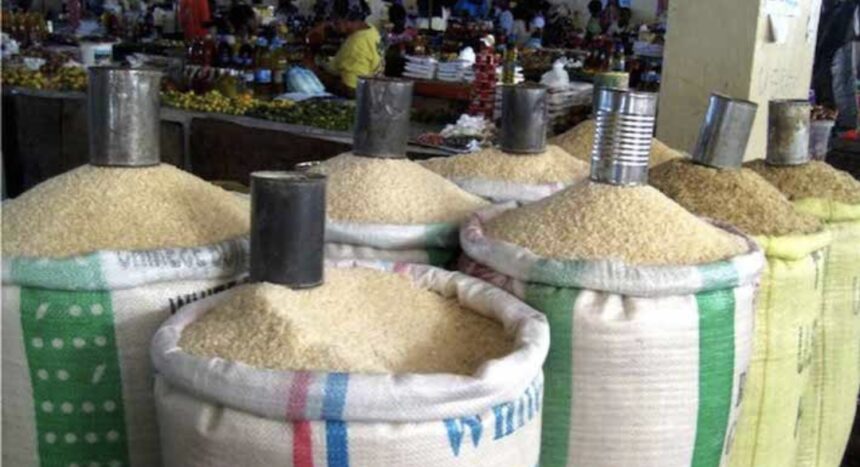Rice prices have plummeted in several Lagos markets, offering much-needed relief to consumers but leaving traders worried about dwindling profits and capital losses.
Findings by the News Agency of Nigeria (NAN) reveal that a 50kg bag of rice now sells between ₦55,000 and ₦70,000, depending on the brand and location — a sharp decline from the ₦85,000 to ₦95,000 recorded earlier in the year.
The price crash is attributed to increased imports following the reopening of land borders and improved local harvests from northern states, resulting in a glut across major markets including Oyingbo, Arena (Oshodi), FESTAC Town, and Mile 12.
At Arena Market, Oshodi, rice dealer Mrs. Precious Okoro lamented that the sudden fall had trapped many traders in losses.
“We’re selling at a loss. I bought bags for ₦80,000 and ₦85,000 early this year but now have to sell for ₦65,000. The fall came suddenly and it’s been tough for us,” she said.
While customers are celebrating the drop, Okoro said traders are struggling to recover their investments and urged the government to stabilize the market through consistent support for local farmers.
“Government should provide incentives and better infrastructure for farmers to sustain production and stabilize prices,” she added.
At FESTAC Market, retailer Mrs. Edith Nwaruh listed current prices: Pretty Lady (₦57,000), Mama Africa (₦62,000), Mama Gold (₦67,000), and Big Bull Premium (₦73,000). She said the decline began around August as both local production and imports surged.
“We have more rice in the market now. When supply increases, prices must drop,” she noted.
Similarly, Mr. Odion Michael of Mile 12 Market described the situation as “a double-edged sword.”
“Consumers are smiling but traders are crying. We want price stability — not sudden jumps or crashes — because it affects our business planning,” he said.
A rice farmer, who spoke anonymously, linked the fall to the reopening of land borders, which he said triggered a flood of imported rice from neighboring countries. He warned that the current prices may not last.
“This drop may be temporary. Prices could rise again before December if supply tightens or demand surges during the festive season,” he cautioned.
At Oyingbo Market, trader Mr. Ben Chidi credited the fall to improved distribution and better support for local farmers, noting that “the market is now well supplied, and consumers are feeling the impact positively.”
For consumers like Mrs. Andriana Okoromaro, the development has been a welcome relief.
“Rice is affordable again. I can now buy a full bag for my family instead of half. It’s a big relief,” she said.
Another shopper, Mrs. Oluwaseun Alade, expressed hope that the low prices would be sustained through the festive season.
“Rice is essential during Christmas and New Year. If prices stay this low, more families will celebrate without worry,” she said.
However, Mrs. Ngozi Okolie offered a different perspective, attributing the drop not only to improved supply but also to weak consumer spending.
“People don’t have much money. Even though prices are down, demand is still low because the economy is tight,” she observed.
While consumers are finally breathing a sigh of relief, traders remain anxious — uncertain whether the rice price drop signals a lasting recovery or a temporary reprieve before another surge.

